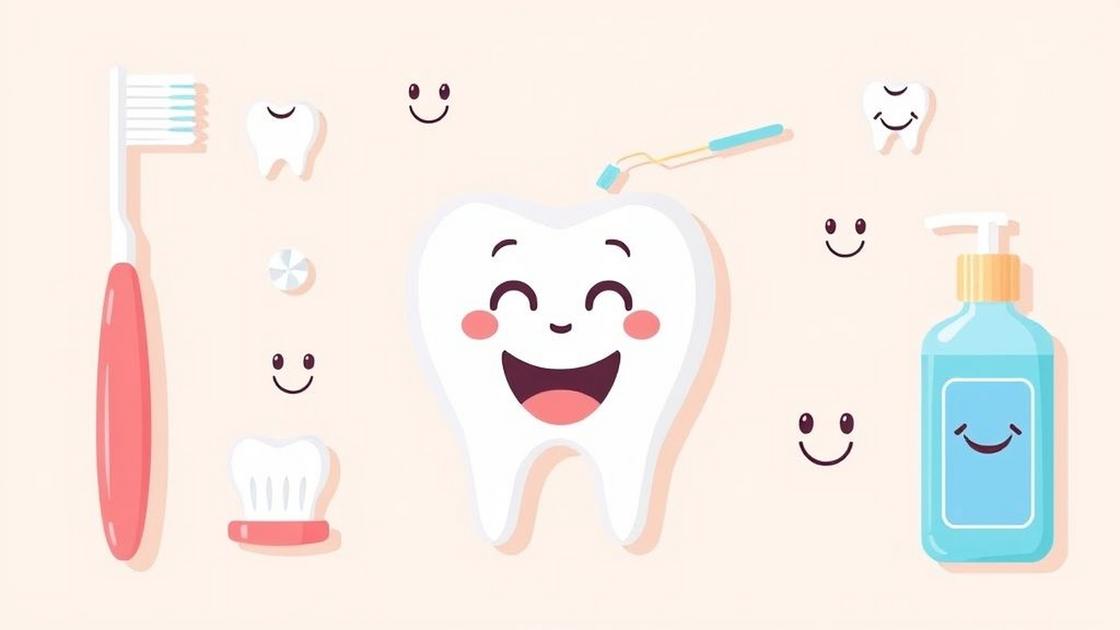Are you aware of the Vitamin D benefits for stronger teeth? If you’ve been struggling with dental issues, you’re not alone. Many women over 30 experience challenges like gum disease and tooth decay, often wondering what they can do to improve their oral health. The truth is, Vitamin D plays a crucial role in maintaining not just our bone health but also the strength of our teeth. In this article, we’ll delve into how this vital nutrient can make a difference and share simple steps to incorporate it into your daily routine.
Understanding the Role of Vitamin D in Oral Health
Vitamin D is often known for its role in bone health, but it plays an equally important part in oral health. This essential nutrient helps your body absorb calcium and phosphorus, two minerals that are vital for maintaining strong teeth and bones. When you get enough vitamin D, it boosts your body’s ability to use these minerals effectively, resulting in healthier teeth and gums.
But why is this so significant? When vitamin D levels are low, your teeth may become more susceptible to decay, and gum disease can thrive. If you’ve ever experienced tooth pain or sensitivity, you may have wondered if something as simple as a vitamin deficiency could be at play. Understanding how vitamin D works in your body is crucial for maintaining not only strong teeth but also overall oral health.
How Vitamin D Affects Tooth Strength
Tooth strength is heavily influenced by mineral balance, with calcium and phosphorus being the key players. Vitamin D facilitates the absorption of these minerals by your intestines. Without adequate vitamin D, even if you’re consuming enough calcium, your body may struggle to utilize it effectively.
Here’s how vitamin D directly impacts tooth strength:
- Encourages Calcium Absorption: Vitamin D enhances calcium absorption in the gut, ensuring that your teeth are fortified with the minerals they need.
- Reduces Inflammation: This vitamin has anti-inflammatory properties, which can help prevent conditions like gum disease that lead to tooth loss.
- Regulates Immune Function: A healthy immune response supports your oral health, reducing the risk of infections that can harm your teeth.
Signs You Might Be Lacking Vitamin D
Many women over 30 face fatigue, mood swings, or unexplained bone pain, and these can all be signs of low vitamin D levels. Pay close attention to the following signs:
- Brittle Teeth: If your teeth seem more prone to breaking or are sensitive to hot and cold, it may be time to check your vitamin D levels.
- Gum Issues: Inflammation, bleeding, or receding gums can signal a deficiency in this crucial vitamin.
- Frequent Illness: Experienced more colds or infections? Vitamin D supports your immune system, and a deficiency can leave you vulnerable.
Dietary Sources of Vitamin D for Healthy Teeth
Eating a balanced diet can improve your vitamin D levels, which in turn supports stronger teeth.
Consider incorporating these foods into your meals:
- Fatty Fish: Salmon, mackerel, and sardines are excellent sources of vitamin D.
- Fortified Foods: Many dairy products, plant milks, and cereals are fortified with vitamin D.
- Egg Yolks: These contain small amounts of vitamin D; adding them to your diet can help.
Combining these foods with a healthy lifestyle can elevate your energy and happiness, paving the way for stronger teeth and gums.
The Connection Between Vitamin D and Gum Health
Interestingly, vitamin D is also linked to gum health. Research has shown that individuals with adequate levels of this vitamin have a lower risk of developing periodontal disease, which is an inflammatory condition affecting the tissues supporting the teeth.
How does this connection work? Vitamin D helps regulate the body’s inflammatory response, ensuring that your gums remain healthy and intact.
Symptoms of gum disease, such as swelling and bleeding, can often be mistaken for minor issues. However, they can lead to serious problems if left untreated. By maintaining proper vitamin D levels, you can contribute to your gum health as part of your overall wellness journey.
Sunlight: Your Body’s Natural Source of Vitamin D
One of the best sources of vitamin D is sunlight. Just 10-30 minutes of daily sun exposure can help your skin synthesize vitamin D naturally. Don’t forget a sunscreen to protect your skin while you soak in those rays!
Here are some tips for maximizing your sun exposure:
- Go Outside: Spend some time in the sun daily, especially during mid-morning or late afternoon.
- Uncover Your Skin: Expose arms and legs, but be cautious not to burn.
- Avoid Overexposure: Balance is key; too much sun can lead to skin damage.
Supplementing Vitamin D: What You Need to Know
If you’re unable to get enough vitamin D from sunlight or food, supplements may be beneficial. However, it’s essential to consult with your healthcare provider before starting any supplements.
Some important points to consider include:
- Types of Supplements: Vitamin D3 is typically more effective at raising blood levels than vitamin D2.
- Dosage: Your healthcare provider can help determine the right dosage for your needs.
- Monitor Levels: Regular blood tests can help you monitor your vitamin D status.
Common Myths About Vitamin D and Dental Health
There are many misconceptions surrounding vitamin D, especially concerning dental health. Let’s address some of the most common myths:
- Myth 1: Only children need vitamin D for healthy teeth. Truth: Adults also need adequate vitamin D for bone and dental health.
- Myth 2: You can get enough vitamin D just from sun exposure. Truth: Many people need dietary sources or supplements to maintain optimal levels.
- Myth 3: Vitamin D only affects bones. Truth: It significantly impacts oral health and can prevent gum disease.
Real Stories: Women Who Improved Their Dental Health
Many women have discovered the transformative power of vitamin D in boosting not only their dental health but their overall well-being. For example, Sarah, a 34-year-old mother of two, started focusing on her vitamin D intake when she noticed her gums were inflamed. After adjusting her diet and getting more sunlight, she shared, “My teeth feel stronger, and I no longer worry about gum disease!”
Another inspiring story is from Lisa, 45, who dealt with frequent tooth sensitivity. After consulting a nutritionist, she learned about the link between vitamin D and oral health. Within months of incorporating more vitamin D-rich foods into her diet, she noticed a remarkable difference.
Your Journey to Stronger Teeth Starts Here
Embarking on a journey to improve your dental health with vitamin D doesn’t need to feel overwhelming. Start small—make simple dietary changes, aim for some sunlight, and consider discussing supplementation with your healthcare provider. Remember, just as other women have transformed their oral health, you too can take control of your dental wellness.
It’s possible to improve symptoms and challenges by following a simple step-by-step method. The journey may be gradual, but every positive choice you make contributes to a healthier future. Discover this solution and take the first step towards brighter, stronger teeth today!






